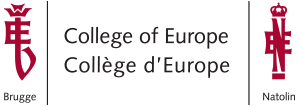14/07/2017
WEASA – week two
We hit the ground running in week two, starting with in-depth lectures by Janis Rungulis from the EEAS StratCom and Maria Zhdanova from StopFake.org. Both of them shared their organisations’ experiences at combating Russian disinformation and propaganda while engaging in deep discussions with participants, who wanted to know more about each organisation’s strategy.
Christiaan Triebert, an analyst at Bellingcat, and Robert Gorwa, from the Oxford Internet Institute, also featured. Christiaan demonstrated, in a riveting presentation, the sheer power of open source data. Social media posts, combined with satellite images, yield so much data that they could even be used to discover war crimes. Robert, on the other hand, focused on the often controversial role that political bots play in modern communication.
Yet it was the lectures of Edward Lucas, senior editor at The Economist, that proved to be one of the key highlights of the summer school. Drawing on his journalistic experiences, he fielded plenty of questions from the audience on a wide range of topics, ranging from journalism to Edward Snowden and all the way through to cybersecurity.
Kim Zetter’s presentations focused on several high-profile cyberattacks, including Stuxnet and the recent attacks on the Ukrainian power grid. Yet our cybersecurity sessions also included some deeply practical elements – Tin Geber led a series of workshops, teaching participants how to encrypt and protect their own private and corporate communications.
We also had the chance to meet some key digital practitioners. Four members of Res Publica’s prestigious NE100 list came over to lead a series of workshops on their own digital innovations and experiences. Maksym Kyiak, a Ukrainian strategic communications scholar, also led a fireside chat, presenting his newest work on the role of humour within strategic communication.
WEASA concluded with a long simulation on internet governance. Participants split up into four groups – representing Google, Facebook, governments, and NGOs. Those groups had to decide upon and negotiate their own positions on how to regulate networks, algorithms, and tech giants.



